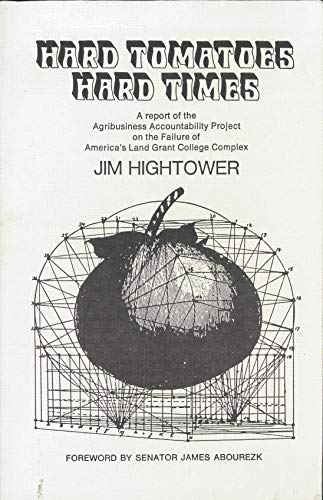Organic History in Texas Part 2
The twentieth century produced a revolution in agriculture. This was the third such revolution, the second being the one associated with during the Industrial Revolution, and the first being the domestication and breeding of grain plants—I think that one was called the Neolithic Revolution.
Today, the agricultural industry churns out a cornucopia of cereals and fruits and vegetables and meats. Enough food is produced that world hunger could be eliminated. By the end of the 20th century, hunger had become a function of distribution not production. Most analysts say that in the modern world, hunger can be completely eliminated. Wow! Thomas Malthus famously said it couldn’t be done. But it can be. Malthus was wrong! This current cornucopia of abundance truly is a marvel.
This marvel, this third revolution, was accomplished thanks to mid-century technological advances in agricultural equipment, hybridized seeds and increased use of artificial fertilizers and pesticides.
It was the reaction and rejection of the last of the trifecta that ultimately led to the development of the concept of organic production. In the middle of the century, chemical weapons called pesticides were created to wage war against pests, and weeds, and predators.
Early on, critics had pointed about some of the “unintended consequences” of this startlingly productive methods of industrial agriculture. They worried that these advances in productivity were not sustainable. Agricultural scientists complained of soil erosion and they detailed the loss of soil health. They deplored the poor quality of the produce. And they lamented the death of the rural economy.
They did not suggest a return to the old way of doing things, but they did point to possible ways to fix the system. They recommended ways to make agriculture sustainable.
Corporate agri-business and the USDA ignored these cranks of organics. The new model of agriculture was feeding the world—and definitively proving Malthus wrong. The new abundance of American agriculture was even a powerful tool of diplomatic warfare. Why shut down the fountain of plenty because of a few cranks?
Organic advocates, counterculture hippies, and critics of industrial agriculture kept up the clamor. In the 80s, the three threads combined—the counterculture with their love of natural non-industrial food and their creation of a new locavore cuisine, the farmworkers and their realization that pesticide and fungicides were damaging their health and the lives of their children, and the public policy advocates who worried about the death of the family farm and the impact on the rural economy.
By 1983, when Jim Hightower won his election as Commissioner of the Department of Agriculture of Texas, the case for organics was finally getting its message heard. The UFW was organizing against the use of pesticides in both California and Texas, Rachel Carson’s Silent Spring had become a best-seller, Jim Hightower’s Hard Tomatoes, Hard Times had alerted progressives to the problems of the USDA and the land grant colleges, and Alice Water’s new cuisine was becoming a rage.
Most importantly, the Bob Bergland USDA had published a favorable report on organic farming in 1980. It was a landmark study and if Carter had remained in office, organics might have gotten the support of the USDA. But the newly elected Reagan squashed the report. Reagan liked jelly beans, mac and cheese, and hamburger soup. He also subscribed in the “fence post to fence post”, “get big or get out” theory of farming.
The case for organics had no place at the Reagan federal public policy table and so government support of the organic movement shifted to the states. Most eyes were on California and Oregon.
But Texas was actually the more significant player. The UFW managed to get some controls on pesticides in California, but the Texas Right to Know Law was stronger, and is still on the books and is one of the strongest in the nation.
California had established private standards for organics.
But Texas had a different strategy.
Hightower came in with the attitude of Franklin Roosevelt in the Great Depression. Although Hightower joked that he couldn’t figure out what was so great about the Great Depression, he was happy to use FDR’s Great Depression strategy. Hightower hired incredible talented people and said, “Do something. Anything. If it works, do more of it. And if it doesn’t work, try something else.”
Hightower and his staff pushed the concept of helping family farmers by aiding the development of value-added marketable products, products that didn’t have to compete with the giant commodity monoculture agri-businesses. Hightower promoted organics as a value-added product. Organics were touted as a marketing technique for small farmers to survive and make a profit.
That marketing strategy came from a Texas practical populist, a democratic populist method. Hightower came from a long line of Texas populists. There is a strong tradition running through the People’s Party, Jimmy Allred, Sam Rayburn, Wright Patman, and Ralph Yarborough of paying attention to the yeoman of Texas, the little people who wanted to reach up to the top shelf and get themselves a jar of jam. Practical politics. Dump the ideology. Look for what works.
When elected, Hightower hired a diverse group of people who developed programs to help small farmers survive and thrive.
One of those new programs was organics.
Stay tuned for the next blog on the initial creation of the program.

